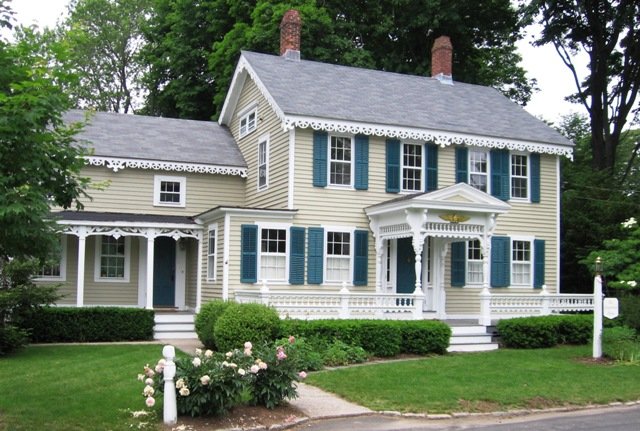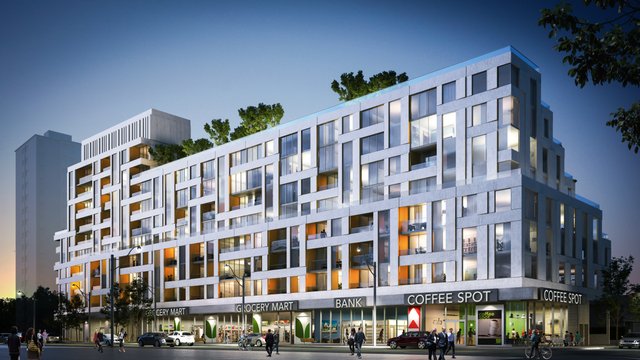
Ever since I bought my first condo, people have been asking me about 'entry level' property, and if it's really a better option than renting. I've decided to sit down and do the math regarding it, as a side by side comparison to what the actual costs involved are.
Taken over a 25 year span (which is the average life of a mortgage these days), we'll look at renting a typical two bedroom apartment vs buying a similar two bedroom condo.
First we'll take a look at renting a place for 25 years;
Average rent in Toronto (2013): $1213/mo
Assuming all utilities outside of electricity are included (pretty typical), you'll be spending around $14,556/year on rent. This amounts over a 25 year period to $363,900.
The additional electricity costs are around $80/month ($960/year, $24,000 for 25 years).
This brings our renting grand total to $387,900

Comparatively, the numbers behind buying a two bedroom condo are as follows;
Price is a subject that is entirely debatable, and is typically the most daunting factor. Downtown condos are going to be a lot more money for a lot less space, and will almost always result in higher costs (although the same can be said for rent). Outside of downtown, you can still find a lot of large units in the sub $150,000 mark quite easily, with access to public transportation and all the goodies you'd expect from a downtown building.
People tend to get hung up on new unit pricing, which is a lot higher than what the actual market is in regards to these types of properties. Lets face it, when you're renting, you're likely in a place that had previous occupants anyways, so buying a 'used' home is a fair comparison.
For arguments sake, I'm going to use the condo building I live in, which is two minutes from the highway, with public transit at the door, in a middle class area. It's about five minutes to get downtown by car, and anything I need (groceries, banks, etc) are within a fifteen minute walk.
Two bedroom units in this building are currently listed at roughly $160,000 and monthly condo fees are $525. These condo fees include all utilities, parking, storage locker and even basic cable TV.
You can likely purchase a unit for roughly 5% less the list value, as prices for property are always negotiable, so we'll use $152,000 as the final purchase price.
To purchase a unit like this, you're looking at the following 'up front' costs;
Down Payment-
For a first time home buyer, this is a 5%, so $7600. This amount comes off the remained that you owe for the property, so our mortgage will be for $142,400 over 25 years.
Legal Fees-
This is a one time, up front cost in order to transfer the property into your name. It generally involves checking to make sure the previous owner was in good standing in regards to taxes, and that there's no problems with the financials behind the whole transaction. Reserving around $2000 for legal fees will be sufficient.
Land Transfer Tax-
In Toronto, this is double the rest of the province. Luckily for the first time home buyer, you won't have to pay this for purchasing a home! Land transfer tax is based on the selling value of the property, and for the above mentioned property would be around $2500. Since we're covering this as a first time buyer, this cost is waived.
Upfront costs total $9600, and we have to obtain a mortgage of $142,400. Lets assume we can borrow the up front costs as well, as that is quite often possible and makes the calculations quite easy.
With an interest rate of 3% and a loan value of $142,400, we come out to a monthly payment of $673.91.
This gives us a total mortgage cost of $202,173. Add in the down payment and lawyers fees ($9600) and the condo fees we'll need to pay over the course of 25 years ($157,500) and our total property cost is $369, 273.
Before we factor in the real estate market at all, a basic calculation gives us a savings of $18,627 over the course of 25 years. or $745.08 a year!
This amount is pretty accurate, as both rent and condo fees will increase approximately the same each year.
If we put that savings ($62/month) towards the mortgage on the property, we'll be debt free three years sooner as well.
This does not take into account that at the end of the 25 year term you not old own a piece of property, but it's very likely that it will have increased in value too!
In conclusion, owning a home is definitely more economical than renting, and gives you a significant savings in the long term.
